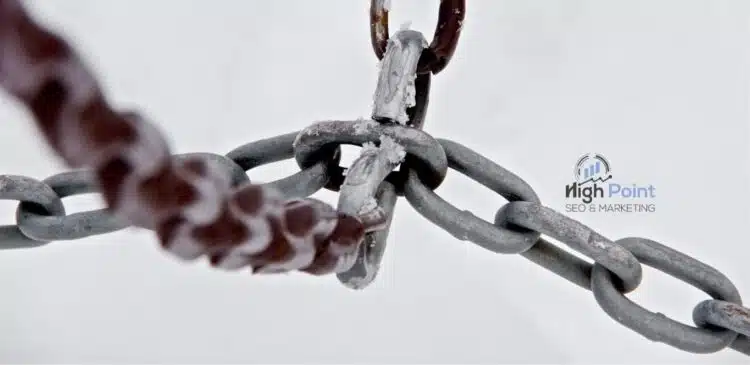Do Outbound Links Help SEO

The world of search engine optimization (SEO) is constantly changing and there are numerous factors that determine the ranking of websites on Google and other search engines. Although most of the attention is paid to internal linking, keyword optimization, and backlinks, outbound links are a crucial, but underestimated, part of the SEO strategy. But do outbound links really help SEO? Now it is time to explore how outbound links can affect the ranking of your site, user experience and the overall SEO performance.
What Are Outbound Links?
Before delving into the question of whether outbound links influence SEO, it is worth knowing what they are. Outbound links refer to those links that take the user out of your site to another site. Such links may direct to other websites on the internet, including blog posts, product pages, scholarly articles, or official sources.
To give an example, when you are writing a blog post on the best practices in SEO and you are referring to another site that explains the recent algorithm update by Google, then that is an outbound link. These links are an important element of web navigation and can help you to increase the authority and credibility of your site.
How Outbound Links Impact SEO
Building Trust and Credibility
Search engines, such as Google, work to give the most relevant and trustworthy content in their search results. By connecting with quality, authoritative websites, you are telling not only Google but the readers that you have done your homework and you have consulted quality sources. This may be used to make your site a reputable source of information.
To give an example, when you provide a link to a government site, a reputable academic journal, or a popular industry leader, it means that your content is in line with authoritative materials. Google can then consider your site more trustworthy and this may have a positive effect on your search ranking.
Improved User Experience (UX)
User experience plays a critical role in SEO. Google is more interested in websites that have valuable, engaging and well-rounded content. By adding outbound links to authoritative and relevant websites, you can make your content more valuable to the user, as they will have a more enriched experience. This can make your content more informative and it can be seen as more useful.
As an example, when you are writing a blog post about how to improve the speed of a site and you add a link to the official page of Google about the PageSpeed Insights, users will find it convenient to get more detailed information.
Contextual Relevance and Topic Authority
By linking to other relevant and related content, you can give Google a better idea of the context of your own page. Relevance is important in terms of contextuality in the ranking of content by search engines. Having your site consistently linking to reputable sources in your niche or industry can be seen by Google as a sign that you are an expert in that field.
To take an example, when you have a tech blog and you frequently link to other reputable tech publications, Google might consider your site to be an authority on technology. With time, this can assist in enhancing your ranking on keywords that are associated with that industry.
Boosting Relationships with Other Websites
The other advantage of using outbound links is that it gives you a chance to develop a relationship with other websites. By connecting to other blogs or resources, the owners of those sites may take note of you and there could be a chance of collaboration or partnerships in the future. This may result in additional back links to your site which is a very important element in SEO.
Furthermore, connecting with influential people or prominent figures in your niche can help you attract their attention and make them refer to your site or share the information with their followers.
No Direct Ranking Benefit, But Indirect Impact
Although outbound links do not directly lead to the improvement of your rankings, they indirectly help in improving the quality of your content. The algorithm that Google applies to rank sites has more than 200 elements, and linking to high-quality, relevant sources can make your content more useful to both the users and search engines. This, in its turn, can enhance the possibility of your content ranking higher.
Also, outbound links may give Google crawlers a better contextual insight, which can result in higher rankings of the page as a bonus.
Best Practices for Outbound Links in SEO
Although outbound links can be useful to SEO, there are best practices to be observed to make them useful.
Here are a few tips:
Link to Authoritative Sources
Always link to reputable, trusted websites. Ensure that the site you are linking to has been known to be an authority in the industry or niche.
Use Relevant Links
Only add outbound links that are relevant to the content that you are writing. Unrelated links or too many links may negatively affect the user experience and your content may seem spammy.
Open Links in a New Tab
It is usually advisable to make outbound links open in a new tab so that the user does not leave your site completely. This allows you to keep the traffic on your page, but still have useful external links.
Avoid Over-linking
Even though it is necessary to give links to the useful sources, too many outbound links will make your page look cluttered and confusing. Use them when you have to and when they are of value.
No Follow When Needed
When you are linking to a less reputable site or an affiliate link that you are being paid to promote, then it is a good idea to use the no follow attribute. This will avoid transferring any SEO value to the linked site and will also make sure that you are not unwittingly giving a recommendation to a low-quality site.

 Bill Yeager, Co-Owner of High Point SEO & Marketing in CT
Bill Yeager, Co-Owner of High Point SEO & Marketing in CT